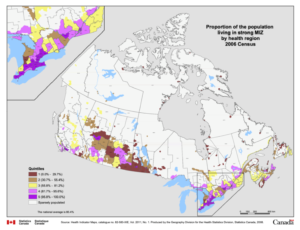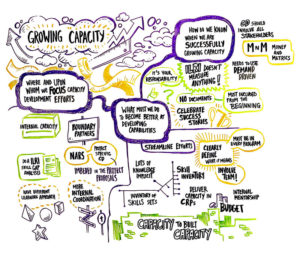To improve health equity for rural Canadians, we must first understand what impacts health and how. This is accomplished through rural health research. Click the expandable menu below for articles about the questions and challenges researchers are exploring to gain a better understanding of rural health issues.
The Importance of Understanding Rural Health through Research
Rural Canada makes up 90% of our land and approximately 18.5% of our population. Our health is influenced by where we live. It has been shown that people living in rural areas have poorer health than those living in urban areas. However, everyone has a right to be as healthy as they can be. This is called health equity.
Health equity means that everyone has a fair and just opportunity to be as healthy as possible. – Robert Wood Johnson Foundation

Research helps us understand why health differences exist and find solutions. Research can be defined as:
the process that asks questions, finds answers in a systematic way, analyses the results of each study, judges their quality and meaning, integrates the results of different studies, investigates the applicability of the results to (rural health and rural practice), and disseminates the results both to professionals and to the public in order to promote awareness, knowledge and change. – Strasser 2001
At present, most health research is done in urban settings. Unfortunately, solutions that work well for the city do not always work for rural environments. The realities and needs of rural people are distinct, and rural health systems and practices are different. Conducting rural health research in rural communities will identify the best solutions for the local areas.
Examples of rural health research topics include:
- the rural health context and rural health practice
- health of rural residents, main health issues (morbidity), and reasons for death (mortality)
- rural health services for rural people as a large group (population health) and individuals (primary health care)
- issues related to health providers working in rural areas, including the care they provide and how to attract and retain them
- specific clinical tasks and topics in rural health
The findings of rural health research will help to create programs, policies, and practices that improve the health of rural people. Research in rural areas also creates important data and builds research abilities that can be fed back into the community to generate more research down the road.





